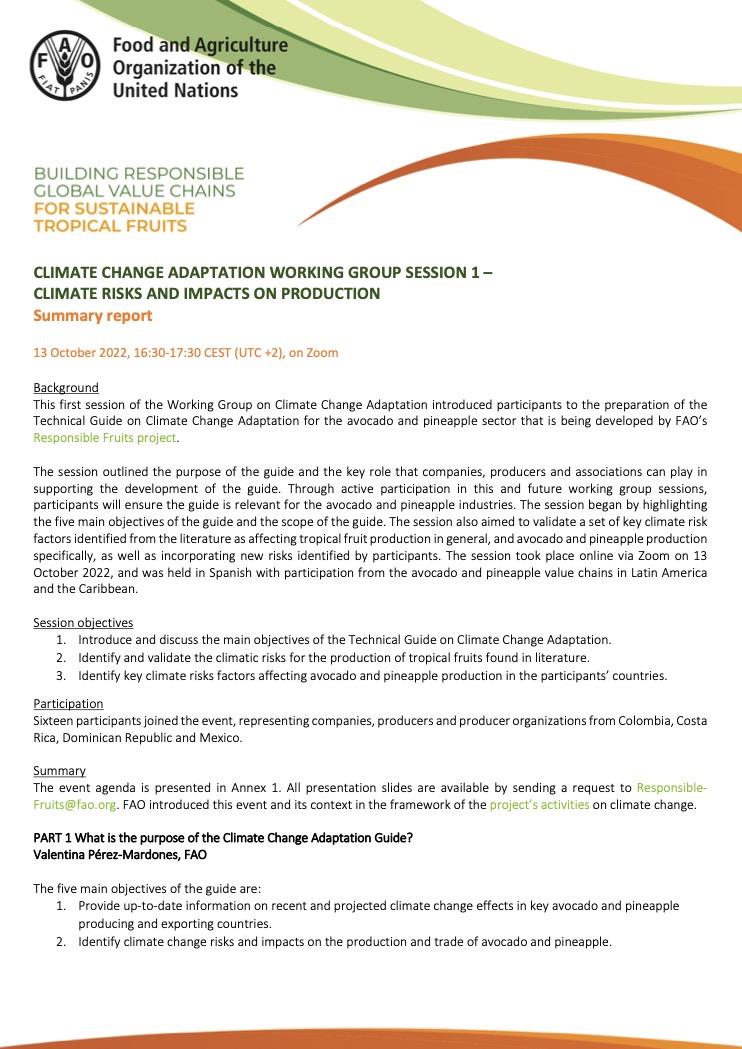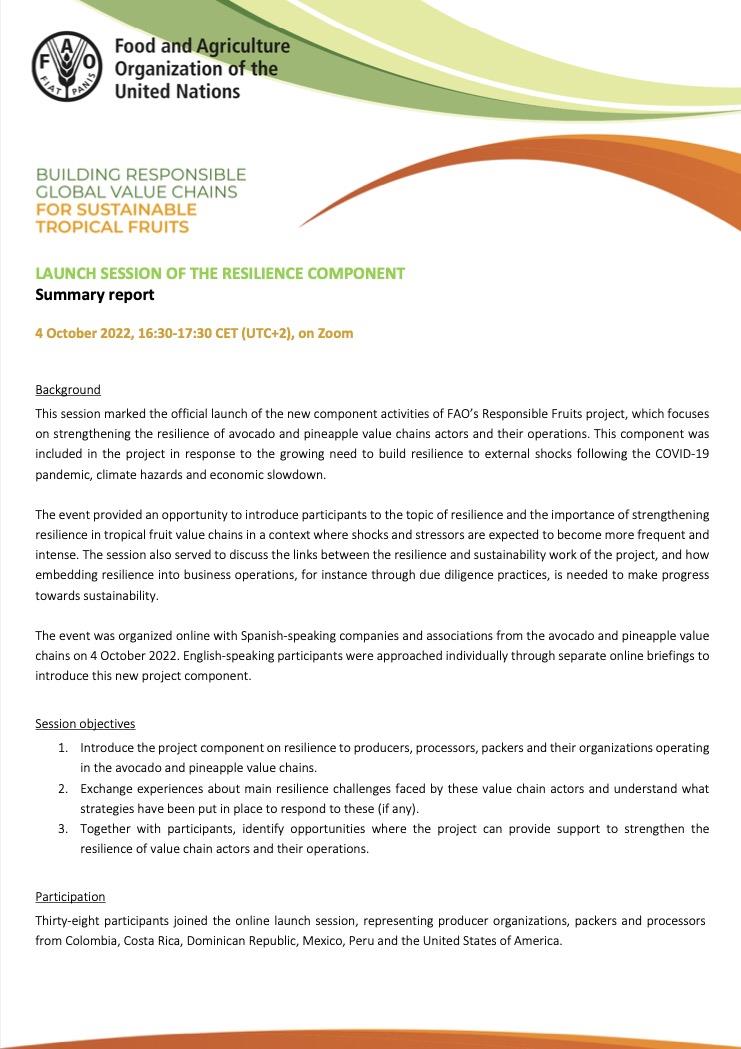Featured publications
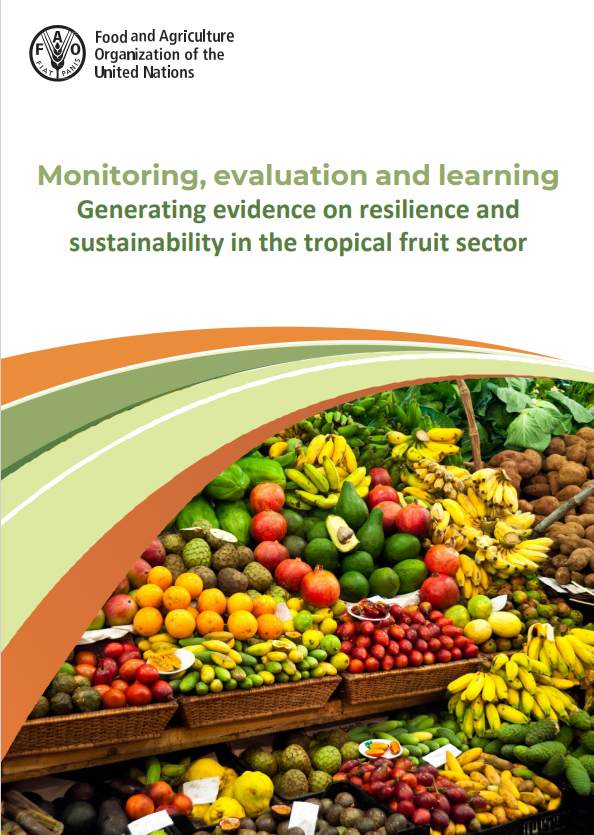
Book (stand-alone)
Monitoring, evaluation and learning – Generating evidence on resilience and sustainability in the tropical fruit sector
30/12/2024
There are growing requirements and expectations from customers, consumers and governments for tropical fruit industry actors to demonstrate how they...

Book (stand-alone)
Gap analysis to support due diligence in the tropical fruit sector – A training guide
19/12/2024
This training guide is designed to support capacity development for individuals and organizations to improve business sustainability and meet the due...
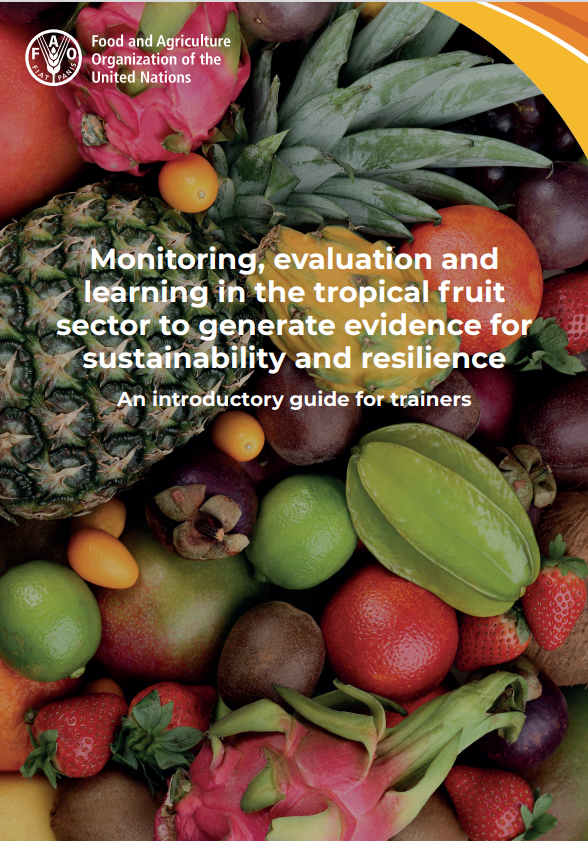
Book (stand-alone)
Monitoring, evaluation and learning in the tropical fruit sector to generate evidence for sustainability and resilience - An introductory guide for trainers
18/12/2024
This training guide on measuring monitoring, evaluation and learning (MEL) was developed to help stakeholders in tropical fruit value chains to generate...
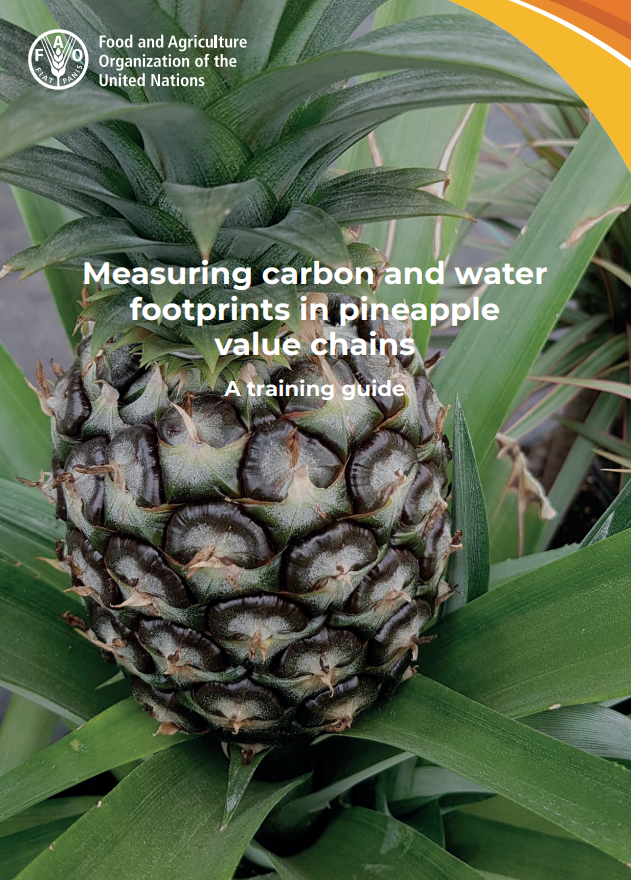
Booklet
Measuring carbon and water footprints in pineapple value chains - A training guide
14/11/2024
This training guide is part of a set of learning materials on measuring carbon and water footprints that was developed to help stakeholders in the pineapple...
Publications
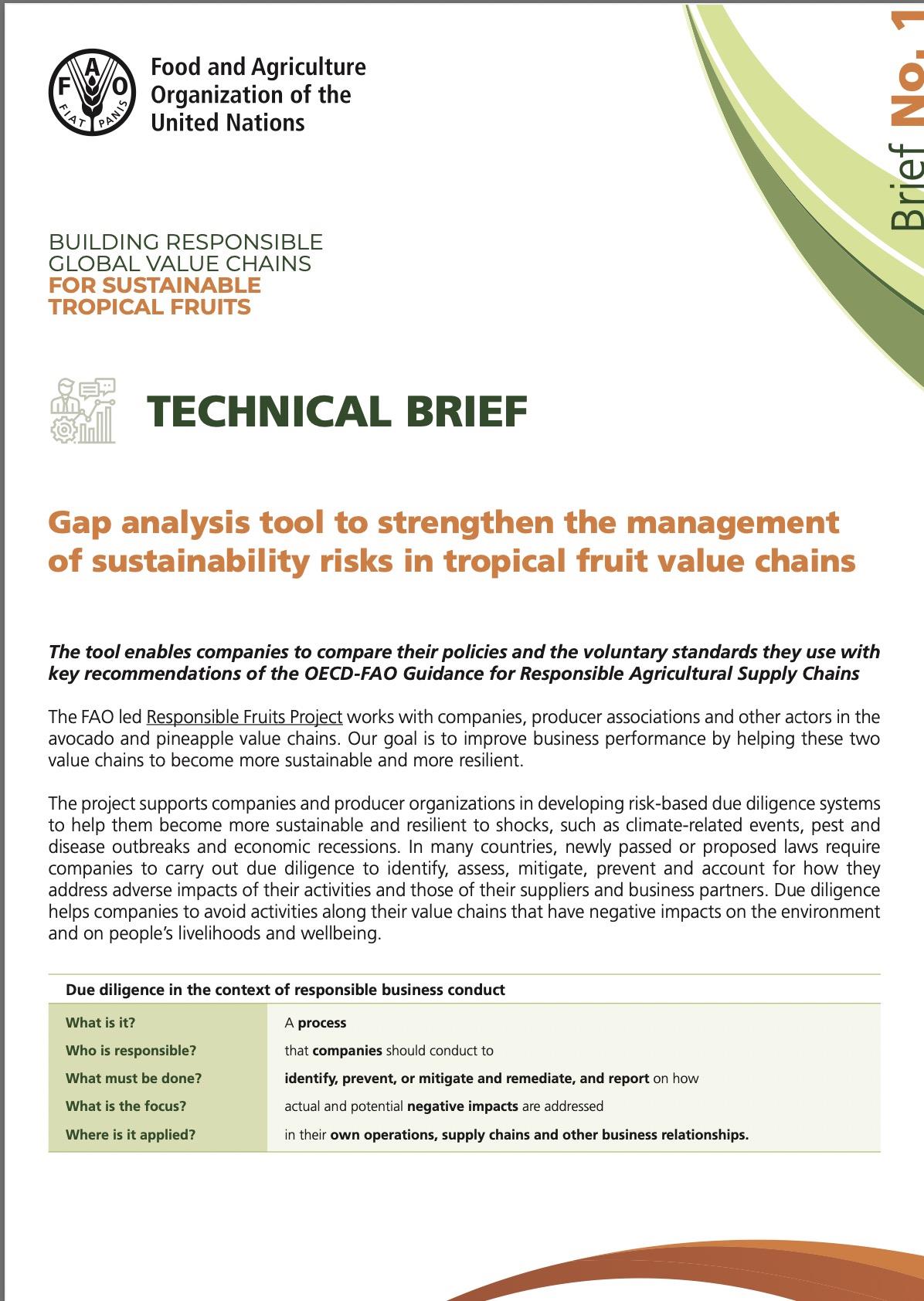
Gap analysis tool to strengthen the management of sustainability risks in tropical fruit value chains
27/10/2022
This technical brief describes a gap analysis tool that enables companies in the avocado and pineapple sectors to compare their policies and the voluntary standards they use with key due diligence recommendations of the OECD-FAO Guidance for Responsible Agricultural Supply Chains.
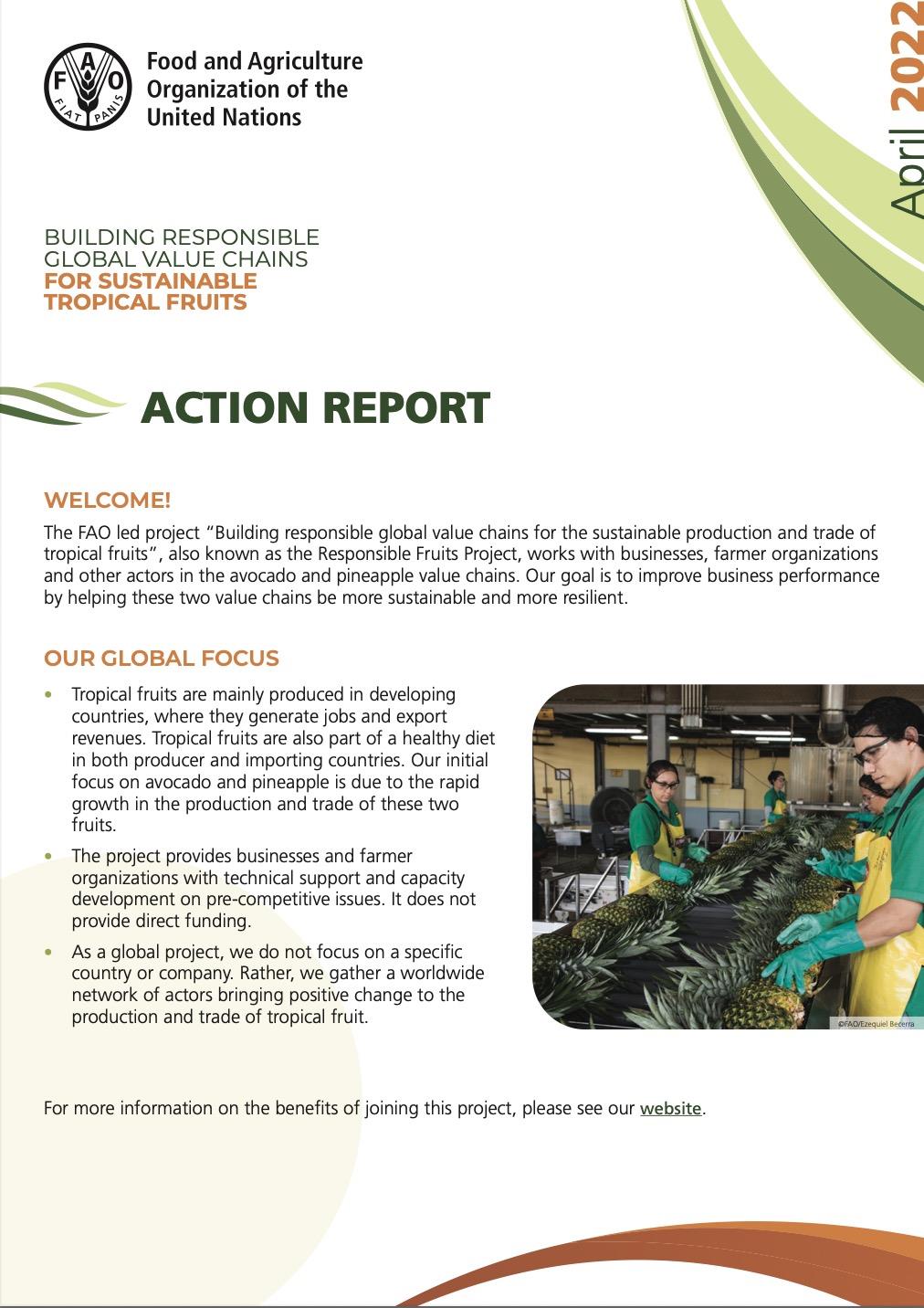
Action Report April 2022: Responsible Tropical Fruits Project
10/10/2022
The FAO led project “Building responsible global value chains for the sustainable production and trade of tropical fruits” works with businesses, farmer organizations and other actors in the avocado and pineapple value chains. Our goal is to improve business performance by helping these two value chains be more sustainable and more resilient. The Action Report series provide periodic updates of the project’s activities. This report was published in April 2022.
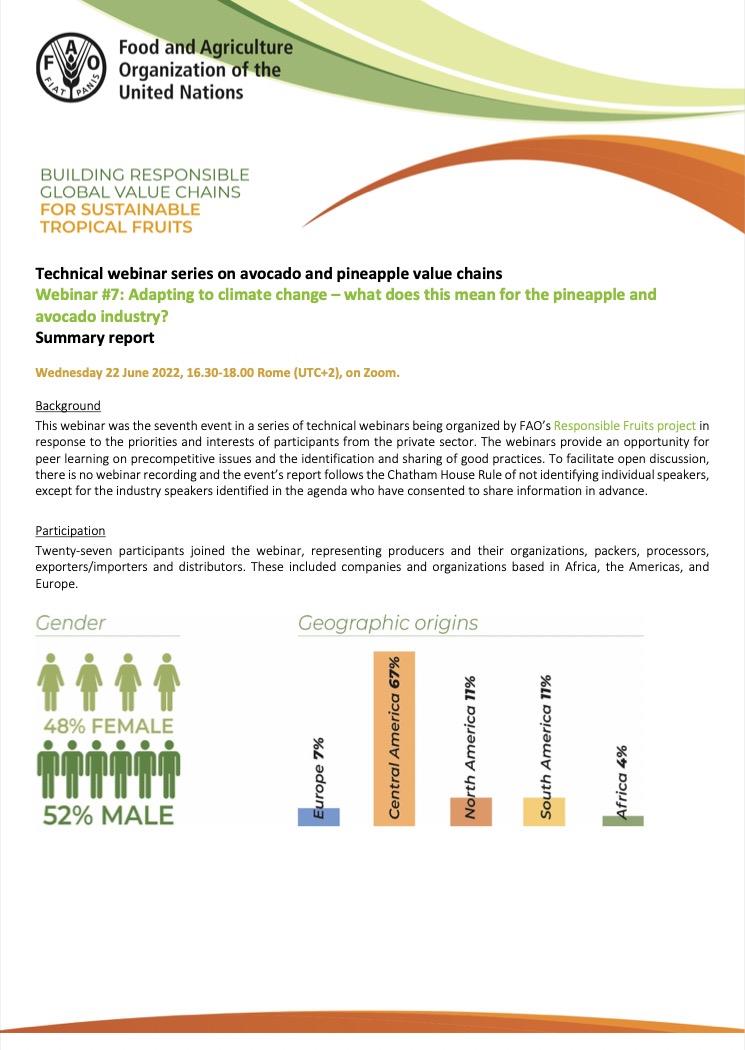
Webinar #7: Adapting to climate change – what does this mean for the pineapple and avocado industry? 22 June 2022
27/09/2022
This was the seventh in a series of technical webinars being organized by FAO’s Responsible Fruits project in response to the priorities and interests of participants from the private sector. The webinars will provide an opportunity for peer learning on precompetitive issues, and the identification and sharing of good practices
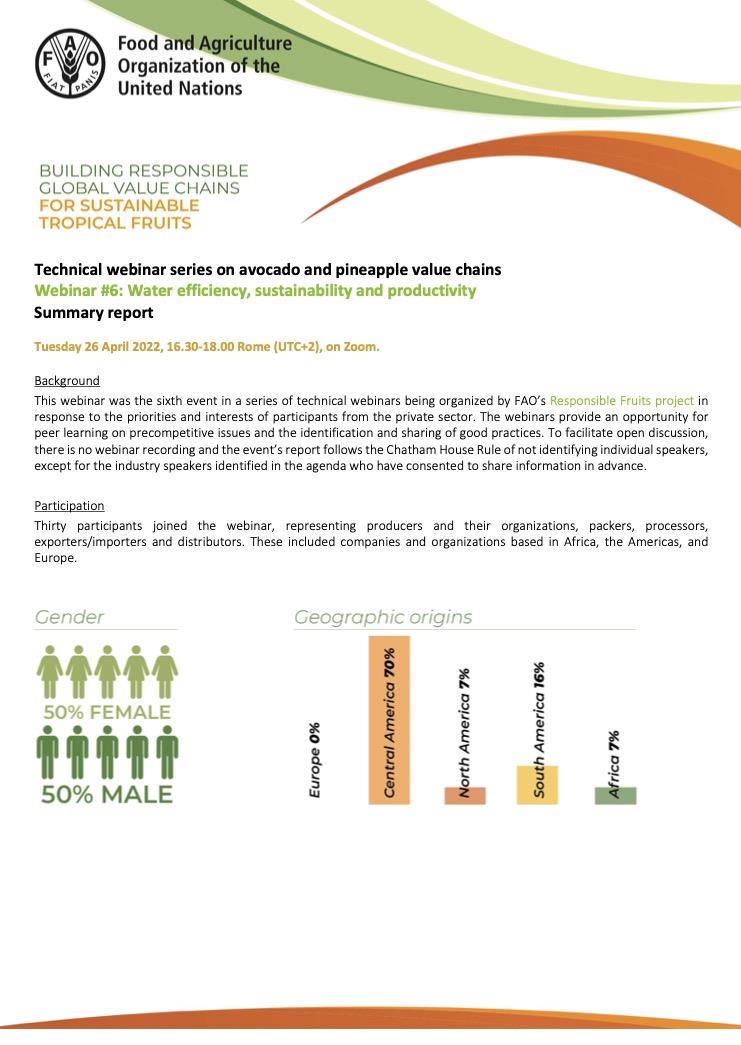
Webinar #6: Water efficiency, sustainability and productivity. 26 April 2022
30/03/2022
This was the sixth in a series of technical webinars being organized by FAO’s Responsible Fruits project in response to the priorities and interests of participants from the private sector. The webinars will provide an opportunity for peer learning on precompetitive issues, and the identification and sharing of good practices
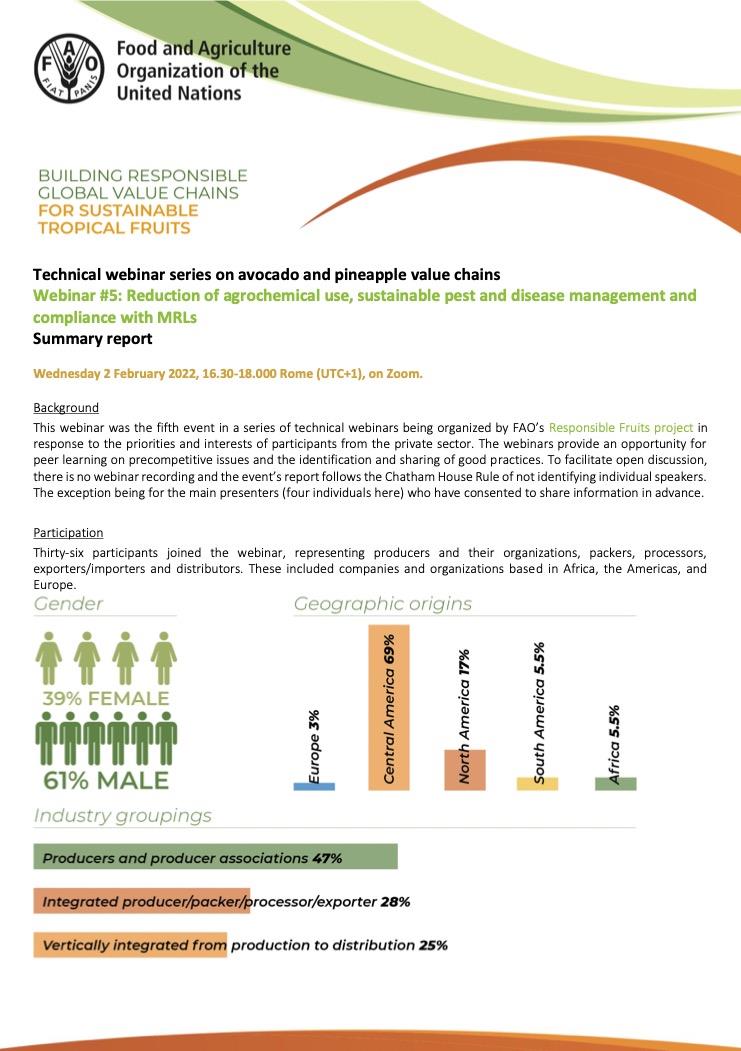
Webinar #5: Reduction of agrochemical use, sustainable pest and disease management and compliance with MRLs - 2 February 2022
24/03/2022
This was the fifth in a series of technical webinars being organized by FAO’s Responsible Fruits project in response to the priorities and interests of participants from the private sector. The webinars will provide an opportunity for peer learning on precompetitive issues, and the identification and sharing of good practices
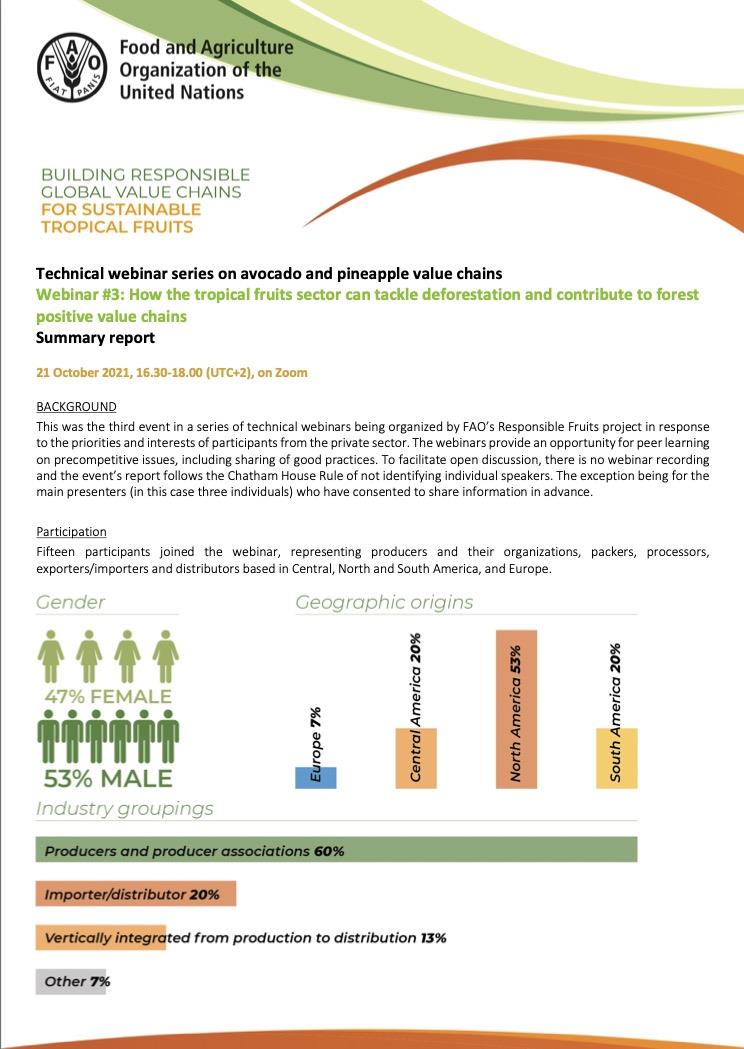
Webinar #3: How the tropical fruits sector can tackle deforestation and contribute to forest positive value chains -21 October 2021
04/03/2022
This was the third in a series of technical webinars being organized by FAO’s Responsible Fruits project in response to the priorities and interests of participants from the private sector. The webinars will provide an opportunity for peer learning on precompetitive issues, and the identification and sharing of good practices
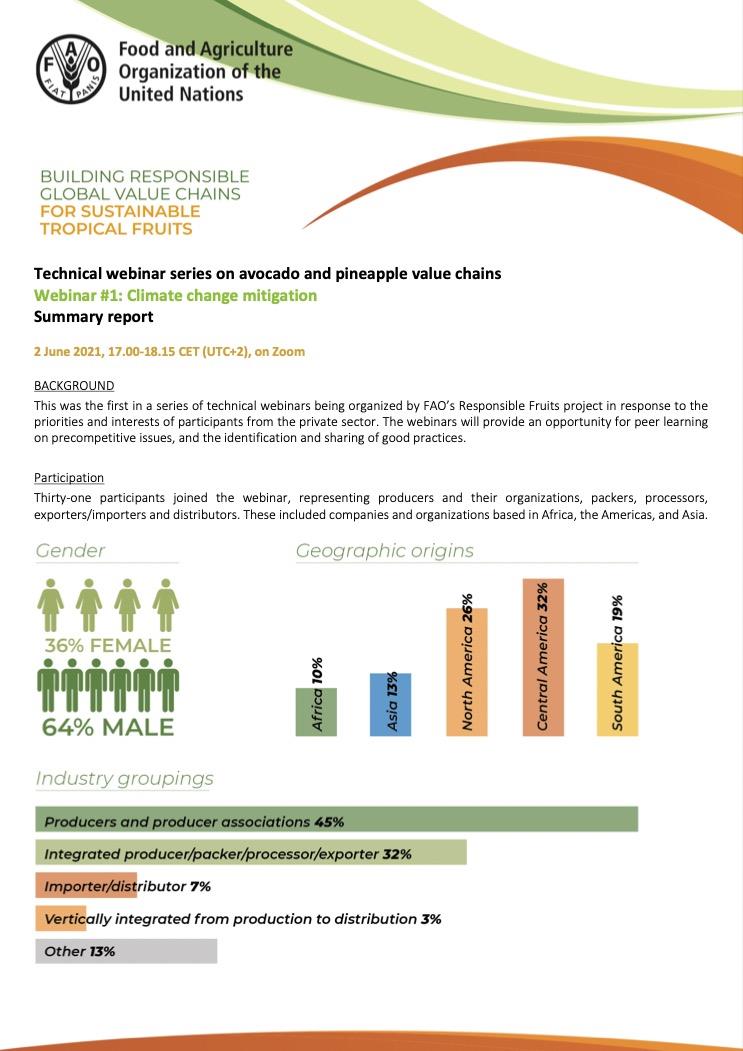
Webinar #1: Climate change mitigation, 2 June 2021
03/08/2021
This was the first in a series of technical webinars being organized by FAO’s Responsible Fruits project in response to the priorities and interests of participants from the private sector. The webinars will provide an opportunity for peer learning on precompetitive issues, and the identification and sharing of good practices
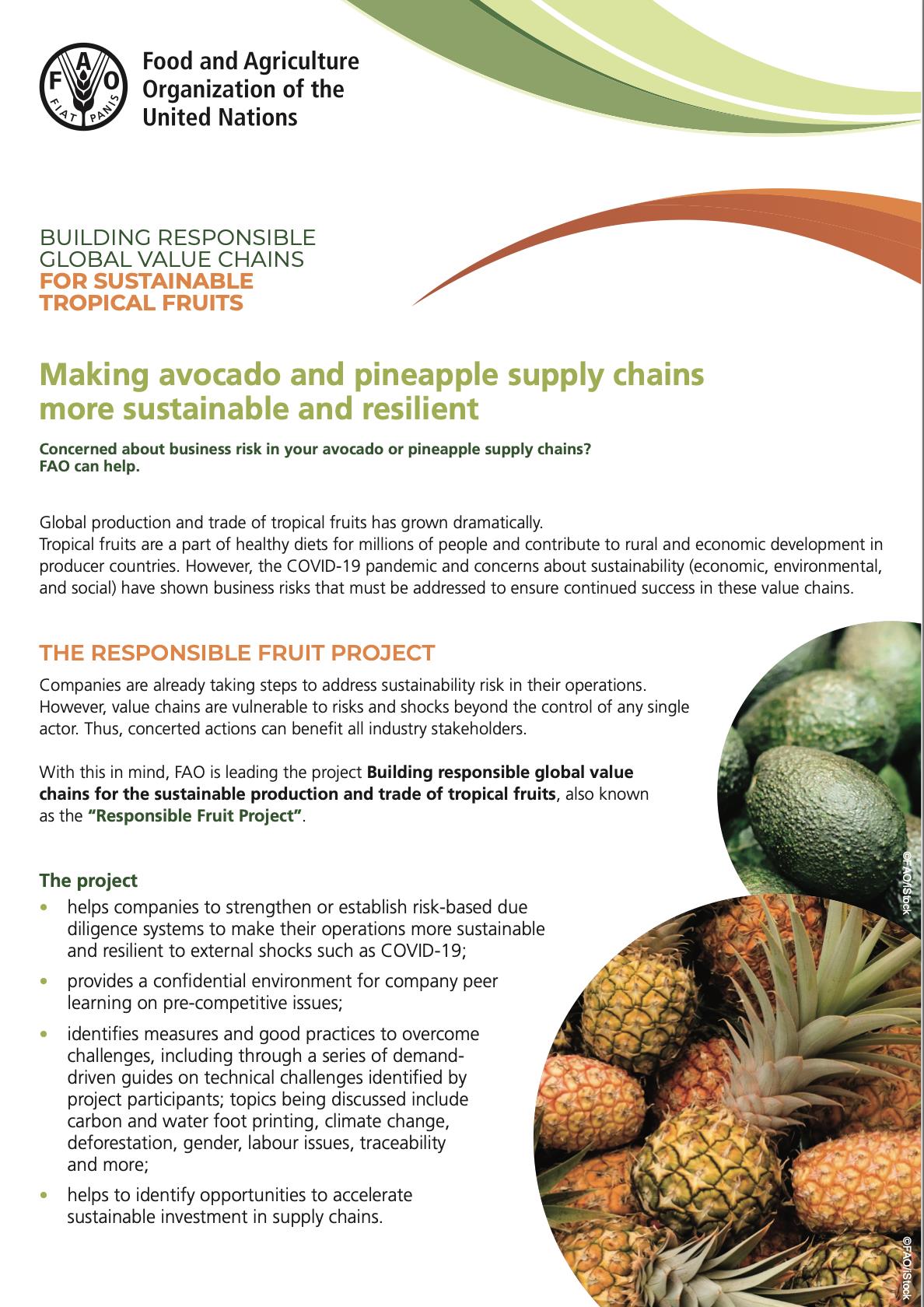
Making avocado and pineapple supply chains more sustainable and resilient
15/07/2021
Concerned about business risk in avocado or pineapple supply chains? FAO can help. Global production and trade of tropical fruits have grown dramatically. Tropical fruits are a part of healthy diets for millions of people and contribute to rural and economic development in producer countries. However, the COVID-19 pandemic and concerns about sustainability (economic, environmental, and social) have shown business risks that must be addressed to ensure continued success in these value chains. Thus, FAO is leading the project “Building responsible global value chains for the sustainable production and trade of tropical fruits”. This flyer introduces the project to the private sector, including companies, producer organizations, trade associations, and industry initiatives. It summarizes how the project will help companies operating in avocado and pineapple supply chains to make their operations more sustainable and resilient. This includes strengthen or establish risk-based due diligence systems; providing a confidential environment for peer learning on pre-competitive issues; developing a series of demand-driven guides on technical challenges; and identifying opportunities to accelerate sustainable investment in these supply chains.
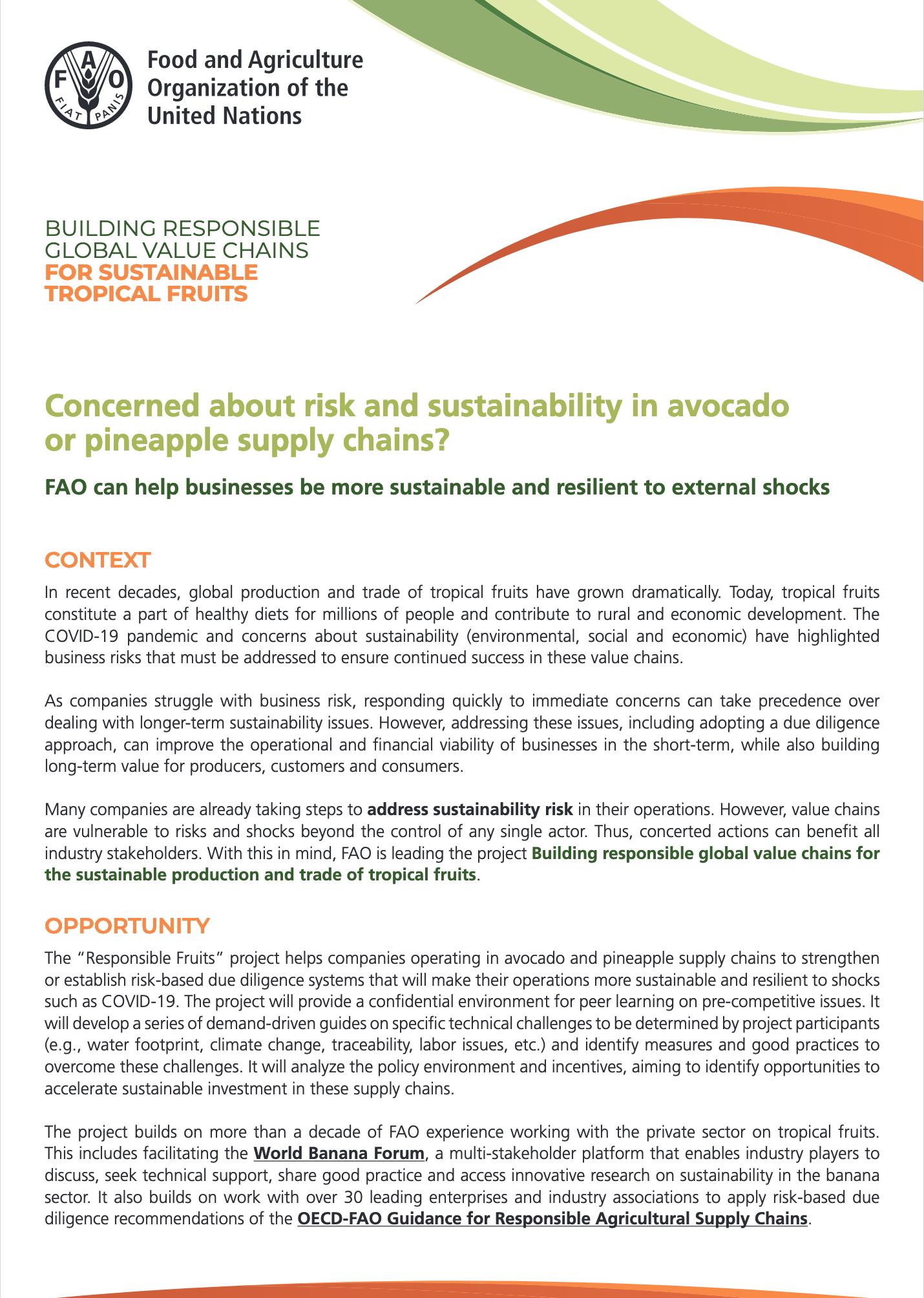
Concerned about risk and sustainability in avocado or pineapple supply chains?
05/06/2021
n recent decades, global production and trade of tropical fruits have grown dramatically. Today they are a part of a healthy diet for millions of people and contribute to rural and economic development. The COVID-19 pandemic and concerns about sustainability (including environmental, social and economic aspects) have highlighted business risks that must be addressed to ensure continued success in these value chains. Many companies are taking steps to address sustainability risk in their operations. However, value chains are vulnerable to risks and shocks beyond the control of any single actor. Thus, concerted actions can benefit all industry stakeholders. With this in mind, FAO is leading the project “Building responsible global value chains for the sustainable production and trade of tropical fruits” (GCP/GLO/022/GER). This project helps companies operating in avocado and pineapple supply chains to strengthen or establish risk-based due diligence systems that will make their operations more sustainable and resilient to shocks such as COVID-19. The project will provide a confidential environment for peer learning on pre-competitive issues. It will develop a series of demand-driven guides on specific technical challenges to be determined by project participants (e.g., water footprint, climate change, traceability, gender, labor issues, etc.) and identify measures and good practices to overcome these challenges. It will analyze the policy environment and incentives, aiming to identify opportunities to accelerate sustainable investment in these supply chains. This flyer provides an overview for stakeholders including international organizations, researchers, academics and policy makers.
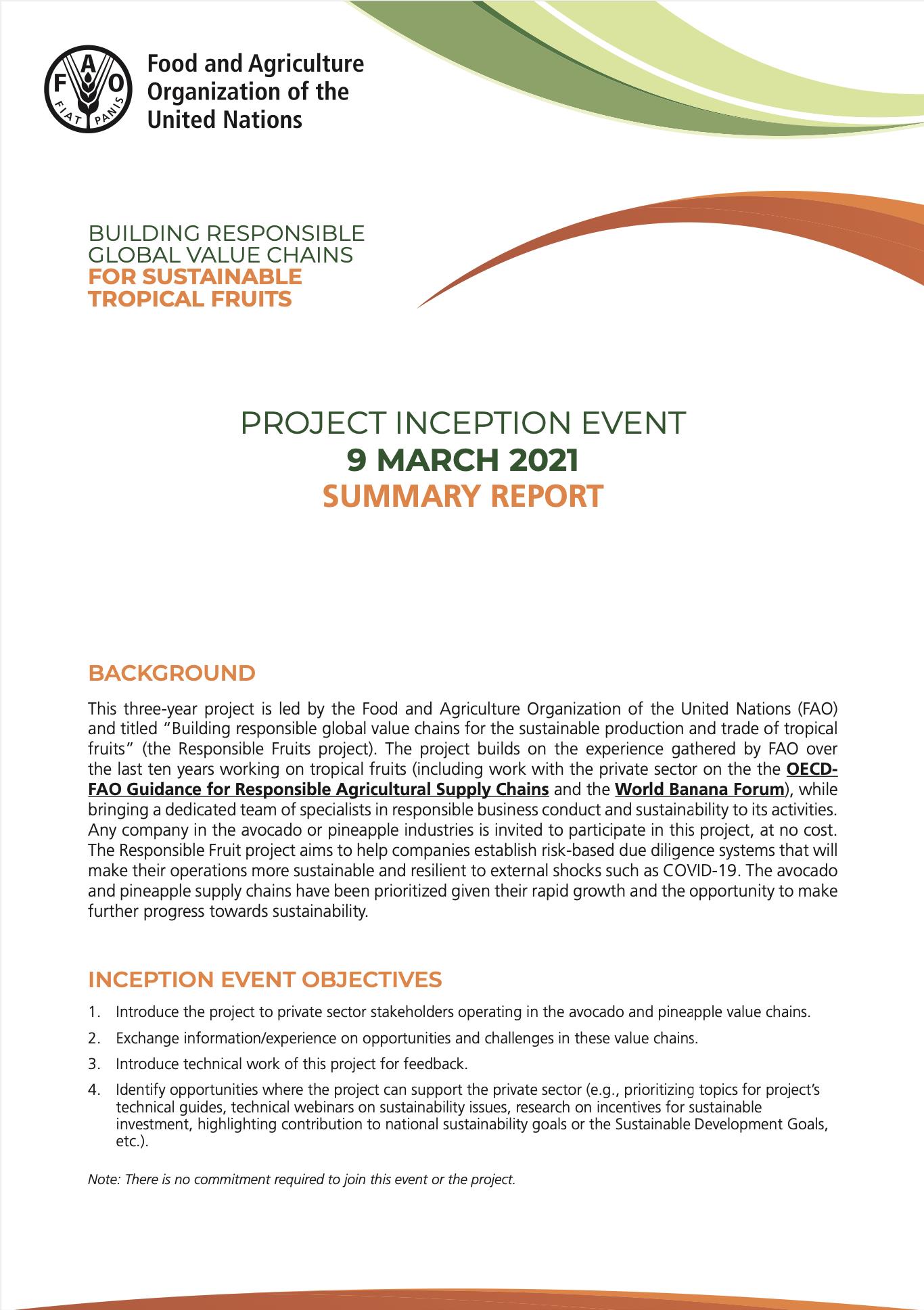
Building responsible global value chains for sustainable tropical fruits
09/03/2021
This three-year project is led by the Food and Agriculture Organization of the United Nations (FAO) and titled “Building responsible global value chains for the sustainable production and trade of tropical fruits” (the Responsible Fruits project).

